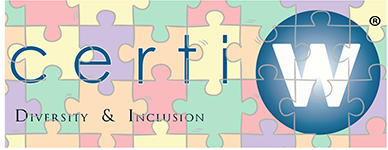
# The Green Claim: The Future of Environmental Communication
## Introduction to the Green Claim
With the entry into force of Directive 825 in 2024, the term “green claim” has gained new significance in the landscape of commercial communications. This concept now refers to any assertion or representation suggesting that a product, brand, or service has a positive or negligible impact on the environment. This is a significant change, as the green claim is no longer seen solely as a marketing message, but as a strategic element whose implications extend to consumer regulations. Although the directive will only come into effect in a binding manner from September 27, 2026, businesses will already have to face these regulatory requirements starting March 26, 2024.
### A Context of Competitive Growth
In the European context of the Green Deal, adopting sustainable practices has become a crucial factor for commercial success. Sustainability is no longer just an ethical value, but also a competitive opportunity. Recent studies have revealed that a significant percentage of consumers are willing to pay more for sustainable products. However, there remains a gap between consumers’ stated attitudes and their actual purchasing choices, often influenced by prices and ambiguous communications.
Greenwashing, or the practice of portraying oneself as more sustainable than one actually is, has begun to raise significant concerns. Recent studies have indicated that a good portion of corporate environmental claims are misleading. This situation has prompted institutions to intervene with stricter regulatory measures.
## Addressing Greenwashing
Directive 825/2024 is a long-awaited response to the growing problem of greenwashing, aiming to clarify what it means to make an authentic green claim. Since 2020, in-depth studies have shown that over half of companies’ environmental assertions are vague or unfounded. Such misinformation undermines public trust and poses a significant risk of distorting competition.
Greenwashing is not just about a lack of sincerity; it should be seen as outright appropriation of environmental virtues. Companies that distance themselves from these practices and communicate clearly and transparently not only have the right but also the duty to defend their integrity. Resources invested in ethical communication that complies with regulations should be better utilized in the current commercial competition context.
## What Falls Under Greenwashing
For the business world, communications included in greenwashing can pertain to various areas. Any form of communication directed at the public is susceptible to examination. The most common include: advertising messages, website content, labels, social media communications, and sustainability reports. The responsibility to provide accurate information rests entirely with companies, which must adhere to stringent regulations.
## Regulatory References and Legal Consequences
In Italy, greenwashing practices are regulated by the Consumer Code, which, while not explicitly mentioning the term, censures any misleading behavior. This means that companies must ensure that their claims are based on concrete evidence; otherwise, they may face significant penalties. The Italian Competition Authority (AGCM) has the authority to impose considerable fines for unfair practices.
Business-to-business (B2B) relationships are also subject to similar rules, as greenwashing practices could be considered unfair competition. Lawmakers are therefore keen to ensure that environmental assertions are supported by adequate data and verification.
## Directive 825/2024 and the Future of Businesses
The new directive not only offers detailed criteria for transparency of information but also introduces the obligation for prior certification of environmental communications.


